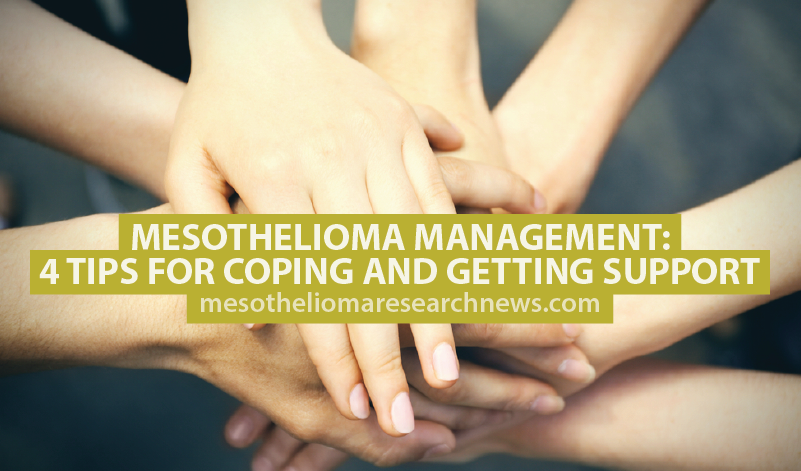1. Learn About Mesothelioma to Make Informed Decisions
It is normal for patients to feel confused or overwhelmed after a diagnosis of mesothelioma. To address the feeling of loss of control over their lives, patients can seek information about the disease. Learn about mesothelioma in places such as the National Cancer Institute, or the American Cancer Society can help patients make more informed decisions about their health care. Also helpful, is to write down questions to ask your health care team.
2. Create a Network of Support
A diagnosis of mesothelioma impacts not only patients, but also family, friends and loved ones. However, these will likely be willing to help, forming a support network. Friends and family can help with quotidian tasks, including taking patients to appointments or treatments. Some patients may find difficult to ask for help, which is why it is important for patients to learn to be honest and accept help when needed.
3. Seek Support with Others Going Through the Same
Even in the cases of a rare disease, each patient is not the only one going through that experience. Meeting other people who also suffer from mesothelioma can be very helpful in coping with the disease. The health care team can help patients find support groups, while there are also online support resources. In these groups, mesothelioma patients can ask questions to other patients, receive support and learn from the experience of others.
4. Plan Ahead
Having an honest conversation with their health care team can help patients understand what is ahead and plan accordingly. Planning ahead also means giving the family advanced directives and guidance about the patient’s medical wishes in the case the patient can no longer speak for him or herself.
Learn more about mesothelioma here: http://bit.ly/learnMesothelioma
Mesothelioma Research News is strictly a news and information website about the disease. It does not provide medical advice, diagnosis or treatment. This content is not intended to be a substitute for professional medical advice, diagnosis, or treatment. Always seek the advice of your physician or other qualified health provider with any questions you may have regarding a medical condition. Never disregard professional medical advice or delay in seeking it because of something you have read on this website.


